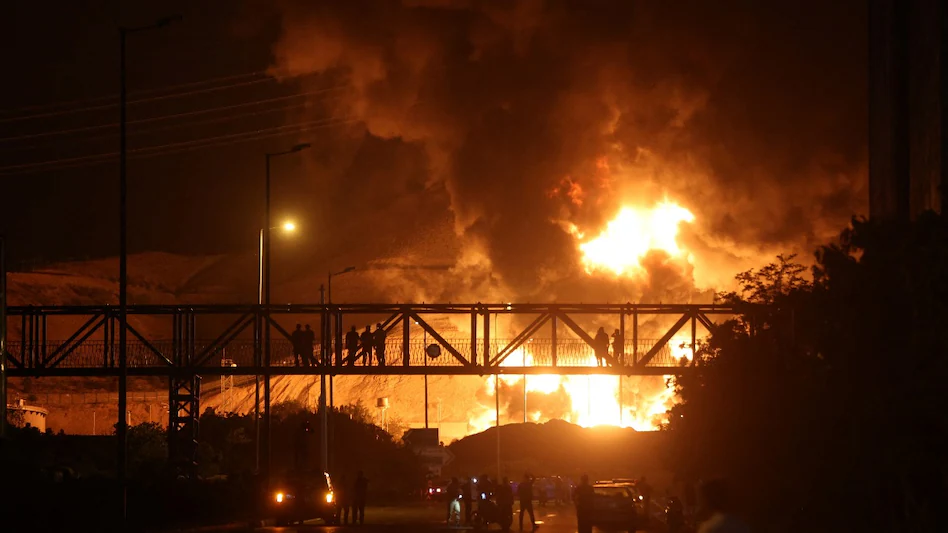US Joins Israel: Recent military operations between Israel and Iranian forces have escalated dramatically. These strikes represent a major shift in regional power dynamics across the Middle East.
Trump administration officials confirmed joint operations targeting Iranian nuclear facilities. Intelligence sources indicate three primary sites faced coordinated attacks yesterday evening.
The Fordow underground enrichment facility reportedly sustained significant damage during these operations. Military analysts suggest this marks the most aggressive action against Iranian nuclear capabilities.
US Joins Israel: Strategic Implications of Joint Military Action
Coordination between Israel and the United States forces demonstrates unprecedented cooperation levels. Military experts believe these joint operations signal broader strategic alignment between allies.
Iranian officials have condemned these attacks through official state media channels. Revolutionary Guard commanders promised swift retaliation against both nations involved.
Regional stability hangs in the balance as tensions reach their highest point. Diplomatic solutions appear increasingly unlikely given recent escalatory moves.
Nuclear Facility Targets and Their Significance
Three major sites faced coordinated strikes during this unprecedented military operation:
- Fordow underground enrichment facility near Qom
- Natanz uranium enrichment plant in central Iran
- Arak heavy-water reactor complex in western regions
Intelligence agencies confirm these locations house critical nuclear infrastructure components. Each facility plays a vital role in Iran’s nuclear development program.
The Fordow site, built deep underground, posed particular challenges for attackers. Advanced bunker-busting munitions were likely required for effective penetration.
US Joins Israel: International Response and Diplomatic Fallout
European allies expressed grave concerns about escalating Middle Eastern conflicts. French President Emmanuel Macron called for immediate de-escalation through diplomatic channels.
United Nations Security Council scheduled emergency sessions to address these developments. Secretary-General António Guterres urged all parties to use peaceful resolution mechanisms.
Russian officials condemned the strikes while offering support to Iranian allies. China similarly criticised unilateral military actions against sovereign nations.
Military Analysis of Operation Execution
Trump suggested complete destruction of the Fordow facility through social media. Intelligence analysts question the accuracy of such claims without verification.
Satellite imagery will likely reveal actual damage levels within the coming hours. Independent assessment teams may struggle to access restricted Iranian airspace.
Military coordination between Israel and United States required extensive planning phases. Such operations typically involve months of intelligence gathering and preparation.
US Joins Israel: Economic and Energy Market Reactions
Global oil prices surged immediately following news of these military strikes. Brent crude jumped nearly twelve percent during overnight trading sessions.
Stock markets across Asia opened with significant volatility patterns this morning. Defense contractors saw their share values increase while energy stocks remained mixed.
Iranian oil exports face potential disruption if conflicts continue escalating further. Global supply chains could experience major disruptions affecting worldwide economic stability.
Regional Power Dynamics Shift
Saudi Arabia maintained careful silence regarding these recent military developments. Crown Prince Mohammed bin Salman faces difficult diplomatic balancing acts.
Turkey condemned the strikes while maintaining its complex regional relationships. President Erdogan called for immediate ceasefire through official government channels.
Iraqi officials worry about potential spillover effects within their territorial boundaries. Baghdad maintains delicate relationships with both Iranian and American forces.
US Joins Israel: Future Implications and Potential Scenarios
Military experts predict Iran will likely retaliate through proxy forces. Hezbollah and other allied groups may launch attacks against Israel targets.
Diplomatic channels remain open despite escalating military tensions across regions. Back-channel negotiations continue between various international mediators and stakeholders.
Nuclear negotiations may face indefinite suspension given current hostile circumstances. Previous diplomatic progress appears increasingly unlikely to resume soon.
Congressional and Political Responses
House Speaker expressed support for defensive actions protecting American allies. Congressional leaders called for immediate briefings on operational details.
Senate Foreign Relations Committee scheduled hearings on Middle Eastern policy. Bipartisan concerns emerged regarding potential wider conflict escalation.
Democratic leadership questioned the timing and scope of these operations. Opposition parties demanded transparency regarding decision-making processes involved.
Conclusion
These unprecedented strikes mark a dangerous escalation in regional conflicts. Both Israel and Iran face critical decisions regarding future actions.
Trump administration faces significant diplomatic challenges moving forward through December. International allies expect clear communication regarding American strategic intentions.
Regional stability depends on careful de-escalation efforts from all parties. Diplomatic solutions remain the only sustainable path toward lasting peace.








Be First to Comment